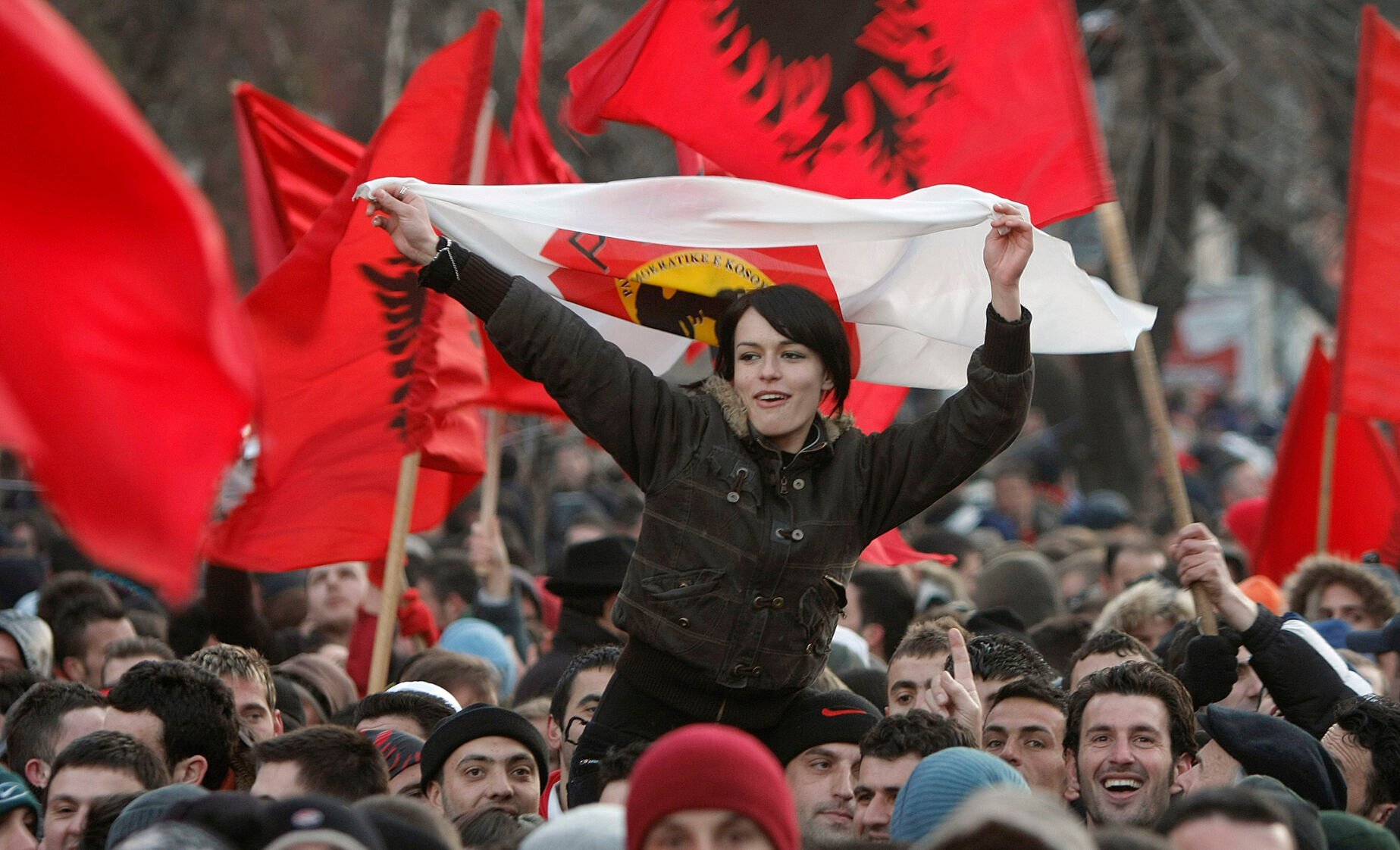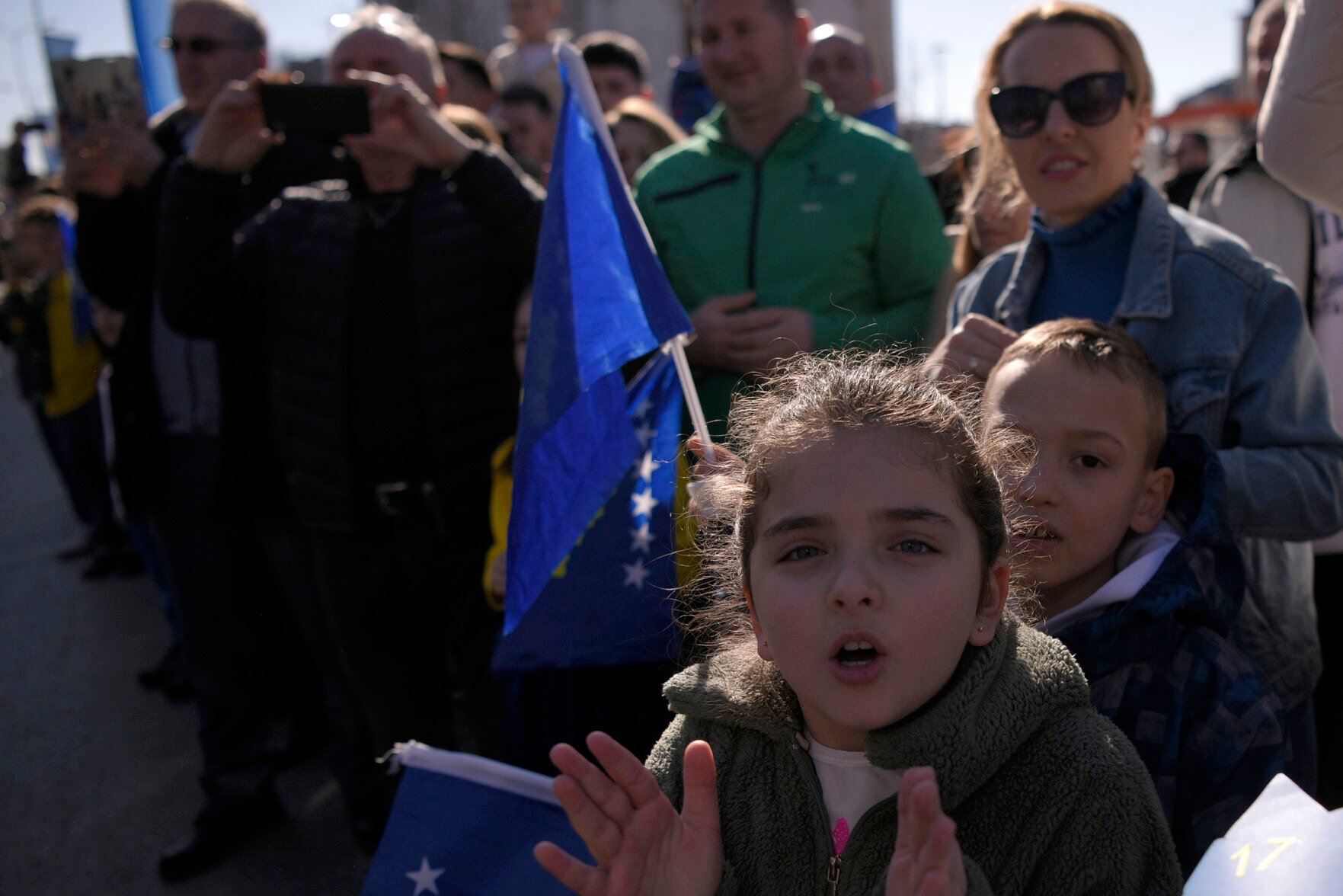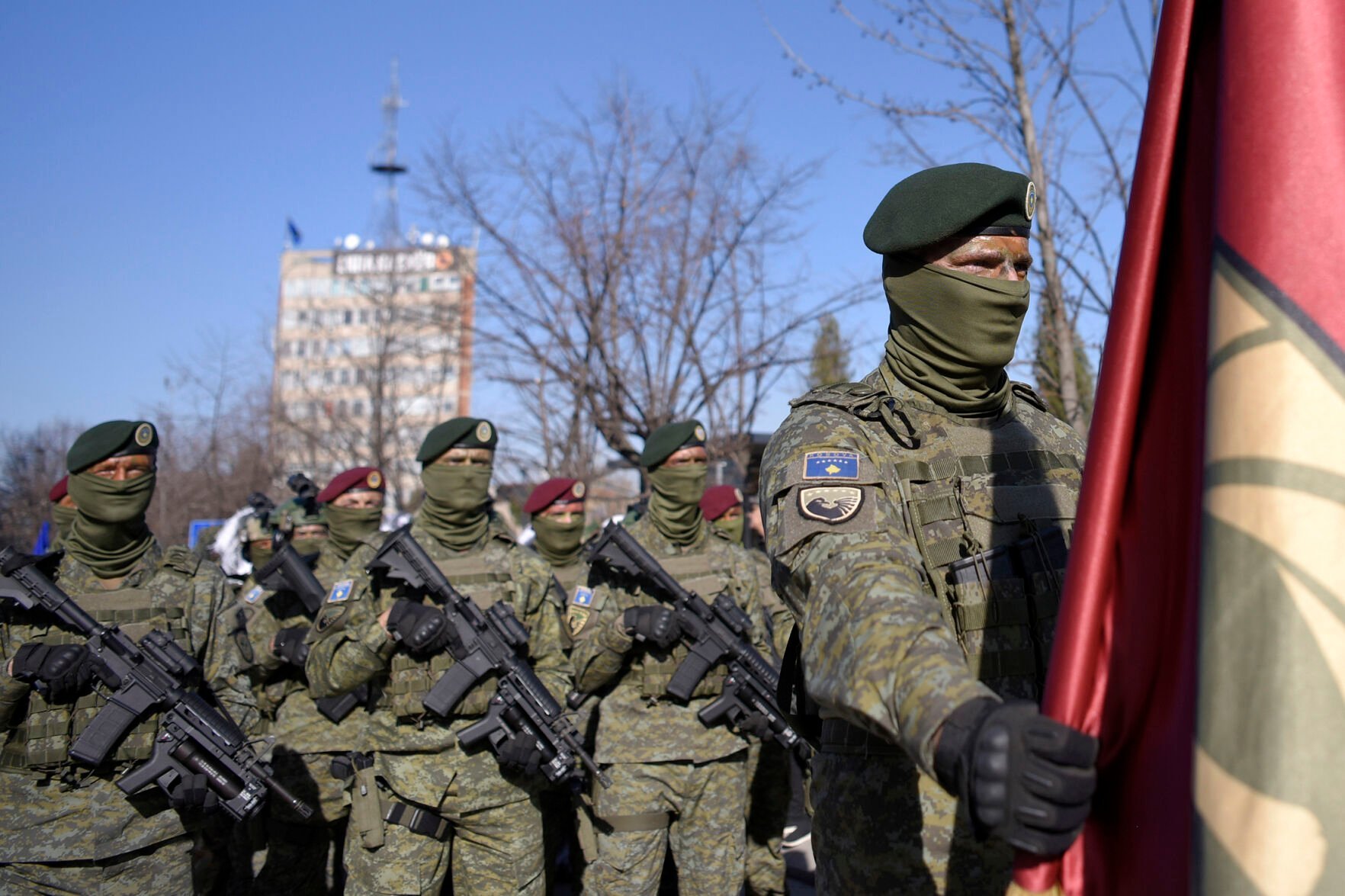Europe’s youngest country Kosovo now 15, but problems endure

Visar Kryeziu, Associated Press
A Kosovar Albanian woman waves a flag Friday as she and others celebrate Kosovo's declaration of independence in Pristina, Kosovo.
PRISTINA, Kosovo — Europe’s youngest country, Kosovo, launched festivities Friday for the 15th anniversary of its independence from neighboring Serbia with a military parade, wreath-laying ceremonies and a special Parliament session.
But the celebrations are overcast by revived tension with Serbia, despite yearslong Western efforts to reconcile the former foes. Both want into the European Union, and were told they must first overcome their differences.
Speaking in the capital Pristina Friday, Prime Minister Albin Kurti steered away from the violence of Kosovo’s begetting, describing his country — one of Europe’s poorest — as “a project of peace, a contributor to peace and a guarantor of peace.”
Ethnic-Albanian-dominated Kosovo unilaterally declared independence on Feb. 17, 2008. That came nearly nine years after a 78-day NATO bombing campaign in 1999 ended Serbia’s bloody crackdown on ethnic Albanian separatists. The International Court of Justice ruled in 2010 that the independence declaration did not violate international law.
The United States and most Western powers are among the 117 countries that have recognized Kosovo’s statehood, and about 200 international organizations have accepted Kosovo as a member — although not the United Nations.

Associated Press
Children applaud during celebrations Friday to mark the 15th anniversary of independence in Pristina, Kosovo.
Serbia, which for centuries considered Kosovo the cradle of its civilization, still sees it as part of its territory and refuses to recognize its independence, backed by Russia and China.
That makes for uneasy relations. Underlying tension flared recently over matters as seemingly trivial as vehicle license plate formats, or the arrest of an ethnic Serb police officer, triggering concern among Western leaders who fear another Balkan conflict amid Russia’s war in Ukraine.
Kosovo’s President Vjosa Osmani played to that concern on Friday, urging NATO and the EU to accept Kosovo and other Western Balkan countries “the soonest possible … as a preventive step toward political, military and economic violation from Russia and its regional satellites.”
Osmani also said Pristina’s negotiations with Belgrade must lead to mutual recognition, adding that Kosovo’s “territorial integrity, constitutionality, legal order and sovereignty are non-negotiable.”

Associated Press
Kosovo Security Force members march during celebrations Friday to mark the 15th anniversary of independence in Pristina, Kosovo.
EU foreign affairs chief Josep Borrell on Friday said Kurti and Serbian President Aleksandar Vucic would meet in Brussels on Feb. 27.
U.S. and EU envoys visited Pristina and Belgrade regularly in recent months with a new proposal for normalizing relations. Its details have not yet been made public. Until now, 12 years of EU-mediated talks produced 33 agreements, which only were partially implemented or largely ignored.
In Serbia, pro-Russia nationalist groups have demanded that Belgrade stop all normalization talks. But Vucic said that would isolate Serbia internationally and kill its EU prospects. Vucic has said he is ready to consider the latest Western plan.
